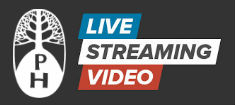Synopsis
International development has complex unintended effects on the realities of equity, rights, governance, and conflict in poor countries. Yet the myriad moral questions and quandaries encountered at every turn by development policymakers and practitioners are seldom thought about or articulated in a rigorous fashion. Instead, development specialists are trained to focus on the technocratic aspects of economic aid delivery and to disregard the moral issues raised by the adverse collateral consequences of aid programs for many people, communities, institutions, and environments in the developing countries. Reclaiming Value in International Development is the first book to bridge the divide between ethics and development from the perspective of a seasoned development practitioner who is also a trained ethicist.
Schwenke formally enlarges the concept of development to include its moral dimension, to denote beneficial change that alleviates human misery and environmental degradation in poor countries and reinforces universal ethical norms such as human dignity, essential freedoms, social justice, peace, civic virtue, human flourishing, the common good, gender equality, safety and security, and participation and inclusion. She applies this ethically expanded concept to nine key topics in international development: education, leadership, procurement, food security, conflict, urbanization, gender identity and sexual orientation, deliberative participation, and the measurement of ethical performance. Throughout the book, the author draws on her thirty years of experience as a development practitioner in thirty poor countries around the world to give vivid real-life illustrations of the classic moral dilemmas in development ethics and to show how moral reasoning can clarify and resolve them.






